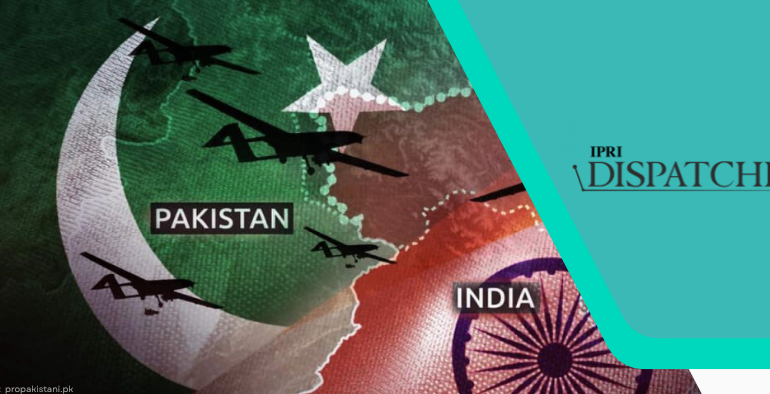
Neha Ansari is a PhD Candidate at the Fletcher School of Law and Diplomacy, Tufts University, and a Lecturer at The Elliott School of International Affairs, George Washington University.
24.01.2022
After much anticipation, Pakistan released the public version of its National Security Policy (2022-2026) last week, which pleasantly surprised many. South Asia security watchers expected a diluted and paranoid report that mostly complained about India and the United States. Instead, Pakistan published a comprehensive and forward-looking policy document, which clearly outlines potential threats as well as long- and short-term interests and goals.
What was surprising? Its focus on Pakistan’s geo-economic strengths and weaknesses and prioritization of economic and human security. The foreign policy and national security portfolios have always been controlled by the country’s powerful military, which has viewed security from the narrower, more archaic, traditional lens. However, the office of the now civilian-led national security adviser has correctly re-assessed the definition and contours of what ‘security’ entails in this globalized, technologically-driven world.
National Security Adviser Moeed Yusuf’s message in the policy document says: “…our national security thinking seeks to identify means of expanding economic resources such that Pakistan can simultaneously strengthen its traditional and non-traditional security.” Islamabad has finally recognized that the ground has shifted, and that true security cannot be achieved or sustained without economic and technological prowess.
Therefore, the National Security Policy (NSP) has been written within the framework of distinguishing between traditional—defense and territorial sovereignty—and non-traditional security, which focuses on geo-economic and human security, including gender and climate.
The significance of economic security is evident from the fact that it appears before defense and territorial security in the public version of the document, signaling the priorities of the NSA’s office. It identifies the country’s main economic challenges—ballooning fiscal deficit, rising socio-economic inequality, and inequity in distribution of resources. It also highlights the need to focus on emerging technologies, education and energy security, and trade and investment.
Separately, the document dedicates an entire section on human security, highlighting the importance of religious and cultural diversity and inclusion, bridging the gender gap, and combatting the climate crisis. For a security-obsessed country like Pakistan, this pivot to economic and human security is a giant leap.
Another surprising element is that the policy is not India-centric. The NSP dedicates two short sections on Kashmir and India, while mentioning the strategic competition it faces with its eastern neighbor in the spheres of technology and maritime access. This aspect of the NSP is not reflective of Pakistan’s security-defense circles that are still obsessed with India, viewing the country’s security as a zero-sum game. Nevertheless, the attempt to decouple Pakistan’s security needs from India is commendable—and a step in the right direction.
That’s all the good stuff. Now for some critique.
First, the NSP’s discussion of Afghanistan was disappointing, to say the least. The humanitarian catastrophe and security situation in Afghanistan should have been treated as a primary concern for Pakistan. The country absorbing hundreds of refugees from its poverty-stricken neighbor, the instability of the Taliban regime, and the increasing violence by Islamic State-Khorasan province are all alarming for Pakistan and the region. Moreover, the return of the Taliban in Afghanistan has encouraged the re-emergence of the Tehreek-e-Taliban Pakistan, which has launched a fresh wave of violence against Pakistan’s security forces.
Yet, Pakistan’s security policy for the next four years barely mentions Afghanistan and the above-mentioned challenges. When it discusses Afghanistan, it’s mostly about ‘brotherly ties’ and ‘westward connectivity.’ Pakistan turning a blind eye to a dire security challenge at its doorstep is frustrating and seems disingenuous.
Second, the training and equipping of law enforcement agencies, particularly the police, warranted more discussion and space in the policy document. Several studies have shown the integral role of law enforcement agencies in the spheres of counterinsurgency, human security, and post-conflict stability. Pakistan needs to make progress in all these three spheres, especially if it wants to quell sectarian, ethnic, and political violence in the country. Therefore, a security policy without such a focus on law enforcement is incomplete and insufficient.
Third, the NSP does not list concrete measures Islamabad can or will take to achieve these policy objectives. Indeed, it identifies broad areas of interests and policy goals, but without specific steps in how these will be accomplished or what the measure of success would be. The need to be vague in a public document to keep tactical details classified is understandable; but a policy guideline devoid of practical steps for implementation is not entirely acceptable. For example, Pakistan’s National Internal Security Plan (NISP) 2014-2018 outlined response mechanisms, which included the creation of institutions, an integration plan for mosques and madrassahs, and capacity-building measures, among other measures. Hence, it is possible to have a public document listing actions the government would take to achieve its national security objectives.
Overall, the NSP is a comprehensive document that outlines what Pakistan’s defense priorities should be. Identifying economic security as the means for achieving national security is the correct prognosis. But will the powerful military-security establishment take that route or allow the civilian government to do so, I am not yet convinced. Nevertheless, it is an important, necessary step in the right direction, especially as the country is in the throes of severe economic and security challenges.
Disclaimer: The views expressed in the article are of the author and do not necessarily represent the institute’s policy.

